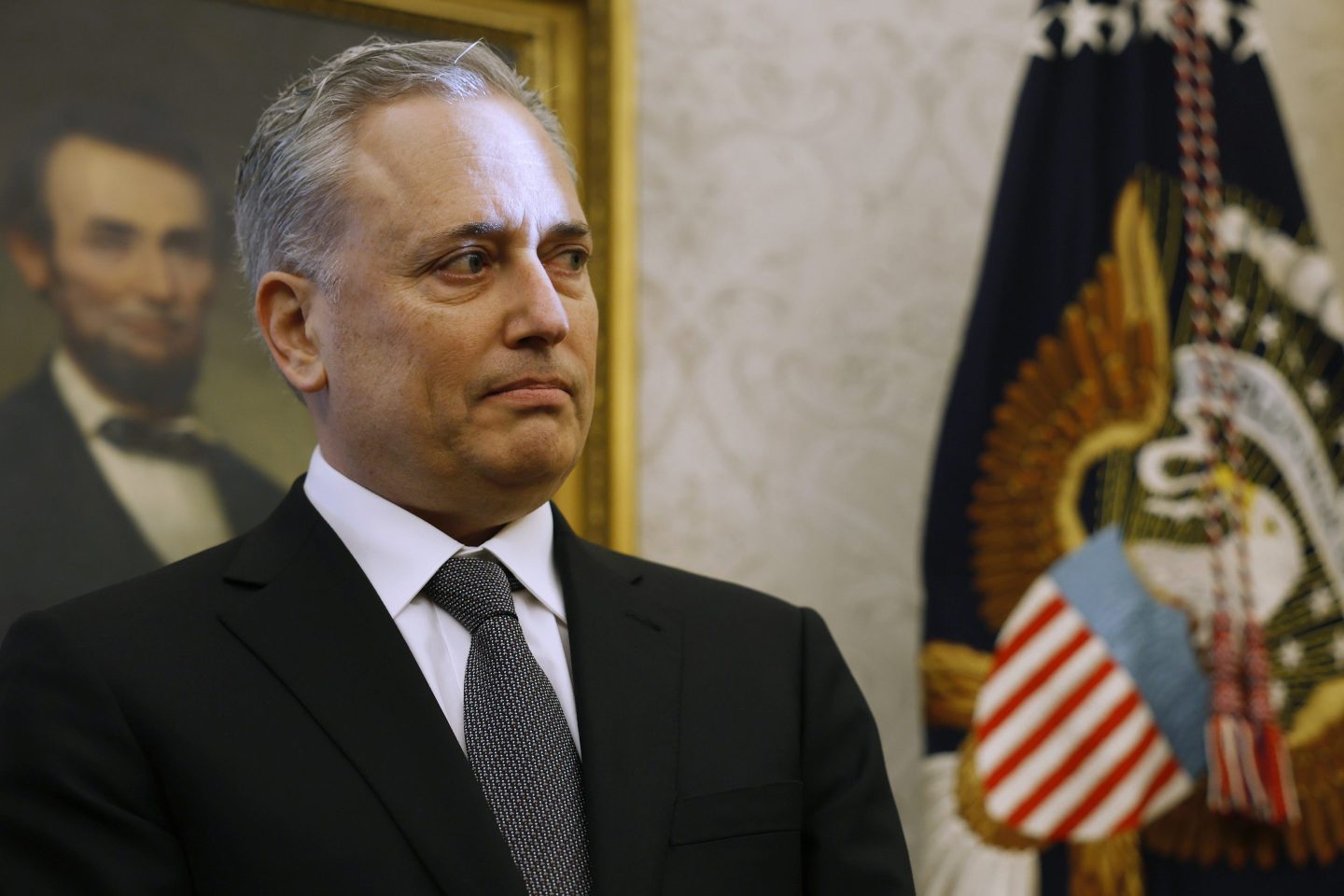Good morning. On this day in 1984, Apple began selling the first Macintosh computer.
Display? Nine inches. (Monochrome, of course.) Memory? 128 kilobytes. Price? $2,495, or about $7,700 today. Interface? Graphic as all get-out.
It’s pretty astonishing how far we’ve come, especially when you read about the OpenAI item below. So you know? Maybe I won’t whine about my smartphone today.
For one day, anyway. —Andrew Nusca
Want to send thoughts or suggestions to Data Sheet? Drop a line here.
U.S. to explore national digital asset stockpile

President Donald Trump solidified his pro-crypto stance on Thursday with an executive order that delivers major wins for the category.
The order establishes a so-called President’s Working Group on Digital Assets Markets to be chaired by David Sacks, Trump’s AI and crypto czar, and joined by other top-ranking members of the government, including the chairs of the SEC and CFTC.
The order directs the group to explore the creation of a national digital asset stockpile (without directly establishing one) and establish “criteria for establishing such a stockpile, potentially derived from cryptocurrencies lawfully seized by the Federal Government through its law enforcement efforts.”
The president has been a vocal supporter of a federal Bitcoin reserve to hedge against inflation. Proponents of the move say it would legitimize the cryptocurrency as a store of value and drive up its price.
Trump also moved to ban any government agency from establishing a central bank digital currency, or CBDC—a digital form of the U.S. dollar. The Federal Reserve had been considering the creation of a CBDC as a means to support more efficient cross-border payments, which would compete with the industry’s killer app—stablecoins.
The excitement about the executive order helped push the price of Bitcoin up 2% to almost $105,000. —Catherine McGrath
OpenAI previews AI agent called Operator
OpenAI yesterday unveiled Operator, its fashionably late take on the hotter-than-hot tech tool known as the AI agent.
The Microsoft-backed company describes Operator as “an agent that can go to the web to perform tasks for you”—things like vacation planning, restaurant reservations, grocery orders, form filling.
(Things it has trouble with, by the way: managing calendars and creating slideshows, according to its maker. Ah, well.)
How does it work? Using new model trained to interact with graphical interfaces—its name is the incredibly literal Computer-Using Agent—Operator can “see” and “interact” with a web browser. “If it encounters challenges or makes mistakes, Operator can leverage its reasoning capabilities to self-correct” or hand control back to the human, OpenAI says.
It’s not difficult to see where things could go wrong with such a capability. A malicious user could use a tool like this to buy up all the best Charlie XCX tour tickets before humans are able to click, or orchestrate phishing campaigns at scale—precisely what OpenAI wants to guard against in this “research preview.”
Operator will launch in the U.S. to subscribers of OpenAI’s $200 per month ChatGPT Pro tier, with plans to expand to Plus, Team, and Enterprise customers. —AN
Trump moves to derail independent privacy oversight board
Remember the endless drama around whether or not U.S. tech firms could legally handle Europeans’ personal data, which seemingly ended in 2023, when both sides agreed a new data-sharing deal and Meta got to call off its plans for a European withdrawal?
It’s back! Trump has reportedly moved to paralyze the Privacy and Civil Liberties Oversight Board, an independent agency tasked with reining in U.S. surveillance practices, by ordering most of its members to quit.
That would not be great for Americans in general, but it would be particularly troublesome for U.S. Big Tech, because without PCLOB, that nick-of-time data-sharing deal could soon be toast.
And if it’s toast, then large and small U.S. companies won’t have any legal basis for handling Europeans’ personal data on U.S. soil.
Some companies might be able to mitigate the problem by keeping the data in Europe and continuing to serve customers there, but a company like Meta, which can’t so easily silo off regional operations, may be forced to abandon the European market after all. —David Meyer
More data
—Subaru security flaws detailed. Hackers could locate, remotely unlock and start millions of vehicles.
—Reliance to build world’s largest data center. More Nvidia AI chips than you can shake a stick at in Jamnagar, India.
—HSBC shutters payments app Zing. The Revolut and Wise rival lasted a year.
—Epic adds third-party games to its app store, takes shots at Apple and Google “non-compliance” in Europe.
—Twilio stock surges 10%. The San Francisco cloud communications company adjusted its operating margin outlook above analyst expectations.
—Perplexity launches AI agent. Android assistant can take “multi-app actions” like ride hailing.
—U.S. charges San Francisco founder with fraud. Former GameOn CEO and wife allegedly defrauded investors of more than $60 million.
—Pakistan parliament passes controversial social media bill. Prison sentences for spreading disinformation.
—Texas Instruments offers tepid outlook. Factory expansion weighs down profit projections.













